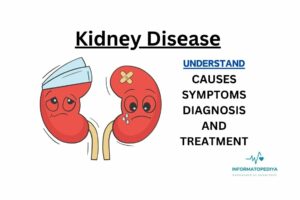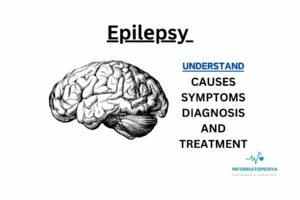
Table of Contents
Abdominal Pain: Causes, Symptoms, Diagnosis, and Treatment
Introduction:
Abdominal pain is a common medical condition that can be caused by a variety of factors. It is characterized by pain or discomfort in the area between the chest and pelvis, known as the abdomen. In this article, we will discuss the causes, symptoms, diagnosis, and treatment of abdominal pain.
Causes:
Abdominal pain can be caused by various factors such as
- digestive disorders
- gynecological conditions
- urinary tract infections
- kidney stones
- bladder infections
- It can also be caused by trauma or injury to the abdomen
- cancer of the abdominal organs, and more
Symptoms:
Abdominal pain is often accompanied by other symptoms such as
- nausea
- vomiting
- diarrhea
- constipation
The location and type of pain can provide important clues to the underlying cause.
It can be sharp, dull, cramping, or burning, and may be accompanied by other symptoms such as
- fever
- chills
- loss of appetite
- weight loss
- difficulty breathing or shortness of breath
- jaundice
- blood in the stool
Diagnosis:
Diagnosing the cause of abdominal pain can be challenging.
The first step in diagnosis is a thorough medical history and physical exam, during which the doctor will ask about the onset, location, and nature of the pain, as well as any other symptoms or factors that may be contributing to the condition.
Additional tests such as
- blood tests
- imaging tests
- endoscopy or colonoscopy
- urine and stool tests
- biopsy may also be recommended.
Treatment:
The treatment plan for abdominal pain will depend on the underlying cause.
In some cases, no specific treatment may be necessary, and the pain may resolve on its own.
However, if an underlying condition is identified, the doctor may recommend medications such as
- antacids
- antibiotics
- anti-inflammatory drugs
- surgery
- lifestyle changes
- pain management techniques
- follow-up monitoring and treatment.
Conclusion:
Abdominal pain can be a sign of a more serious underlying condition and should not be ignored. If you experience persistent or severe abdominal pain, seek medical attention immediately. With proper diagnosis and treatment, most cases of abdominal pain can be effectively managed, allowing individuals to enjoy improved quality of life and reduced discomfort.


What questions to ask about abdominal pain?
5 Questions to Ask If You Have Stomach Pain
Severity: Is the pain so severe that when it’s present, you can’t focus on or do other things?
Vomiting: Are you also vomiting? …
Output: Okay, no one likes to talk about this, but I’m a doctor, so I have to ask. …
Other symptoms: Are you having difficulty breathing?
What questions to ask about abdominal pain?
Less serious causes of abdominal pain include constipation, irritable bowel syndrome, food allergies, lactose intolerance, food poisoning, and a stomach virus. Other, more serious, causes include appendicitis, an abdominal aortic aneurysm, a bowel blockage, cancer, and gastroesophageal reflux.
What are red flags for abdominal pain?
Red flags that raise suspicion of serious pathology
Confusion/impaired consciousness. Signs of shock. Systemically unwell/septic-looking. Signs of dehydration.







Right here is the right blog for anyone who would like to understand this topic. You realize so much its almost hard to argue with you (not that I actually will need toÖHaHa). You certainly put a brand new spin on a subject thats been discussed for years. Wonderful stuff, just great!
The way you engage with your audience makes me feel like a part of a community.